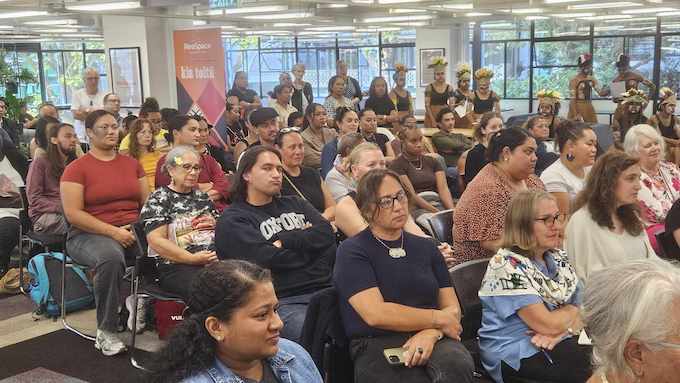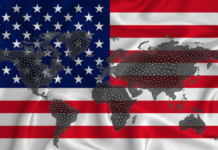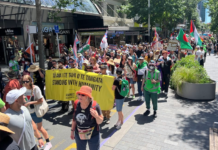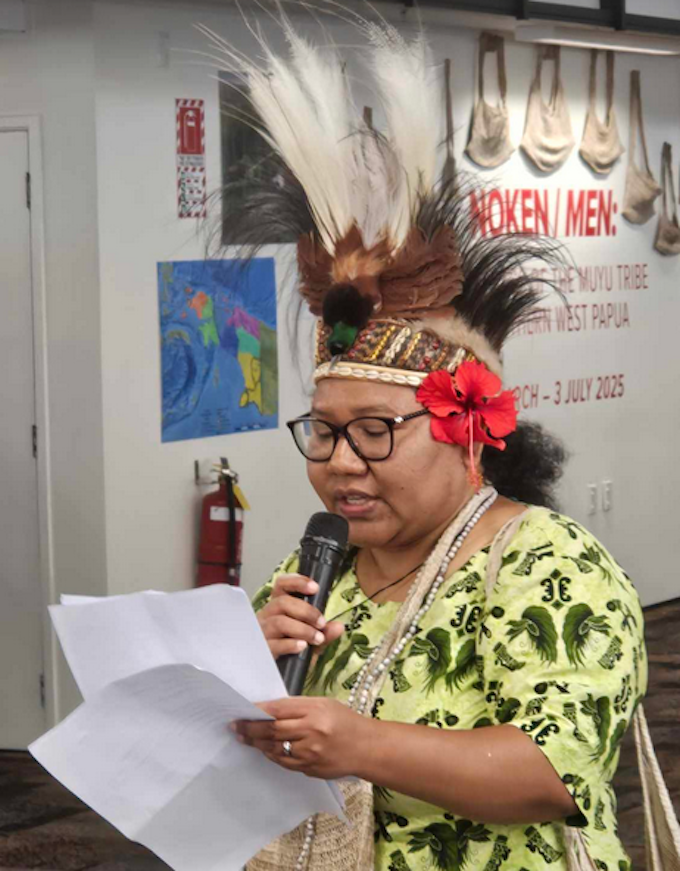
Asia Pacific Report
A West Papuan doctoral candidate has warned that indigenous noken-weaving practices back in her homeland are under threat with the world’s biggest deforestation project.
About 60 people turned up for the opening of her “Noken/Men: String Bags of the Muyu Tribe of Southern West Papua” exhibition by Veronika T Kanem at Auckland University today and were treated to traditional songs and dances by a group of West Papuan students from Auckland and Hamilton.
The three-month exhibition focuses on the noken — known as “men” — of the Muyu tribe from southern West Papua and their weaving cultural practices.
It is based on Kanem’s research, which explores the socio-cultural significance of the noken/men among the Muyu people, her father’s tribe.
“Indigenous communities in southern Papua are facing the world’s biggest deforestation project underway in West Papua as Indonesia looks to establish 2 million hectares of sugarcane and palm oil plantations in the Papua region,” she said.
West Papua has the third-largest intact rainforest on earth and indigenous communities are being forced off their land by this project and by military.
The ancient traditions of noken-weaving are under threat.
Natural fibres, tree bark
Noken — called bilum in neighbouring Papua New Guinea — are finely woven or knotted string bags made from various natural fibres of plants and tree bark.
“Noken contains social and cultural significance for West Papuans because this string bag is often used in cultural ceremonies, bride wealth payments, child initiation into adulthood, and gifts,” Kanem said.
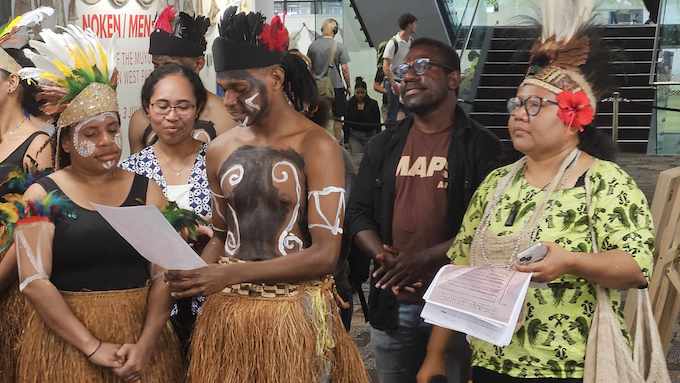
“This string bag has different names depending on the region, language and dialect of local tribes. For the Muyu — my father’s tribe — in Southern West Papua, they call it ‘men’.
In West Papua, noken symbolises a woman’s womb or a source of life because this string bag is often used to load tubers, garden harvests, piglets, and babies.
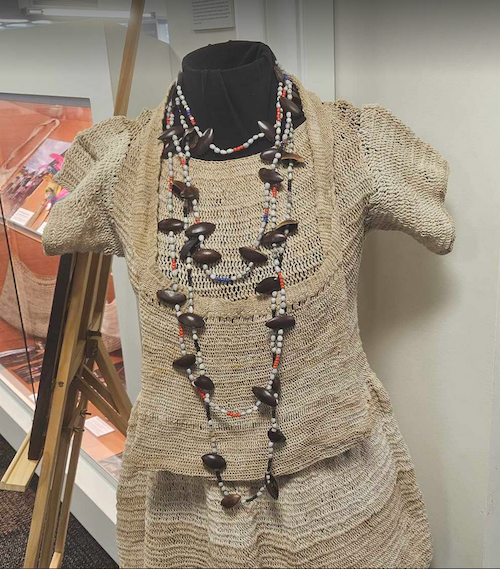
“My research examines the Muyu people’s connection to their land, forest, and noken weaving,” said Kanem.
“Muyu women harvest the genemo (Gnetum gnemon) tree’s inner fibres to make noken, and gift-giving noken is a way to establish and maintain relationships from the Muyu to their family members, relatives and outsiders.
“Drawing on the Melanesian and Indigenous research approaches, this research formed noken weaving as a methodology, a research method, and a metaphor based on the Muyu tribe’s knowledge and ways of doing things.”
Hosting pride
Welcoming the guests, Associate Professor Gordon Nanau, head of Pacific Studies, congratulated Kanem on the exhibition and said the university was proud to be hosting such excellent Melanesian research.
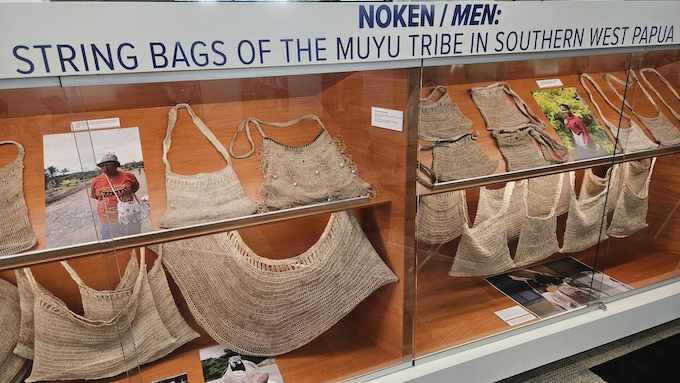
Professor Yvonne Underhill-Sem, Kanem’s primary supervisor, was also among the many speakers, including Kolokesa Māhina-Tuai of Lagi Maama, and Daren Kamali of Creative New
The exhibition provides insights into the refined artistry, craft and making of noken/men string bags, personal stories, and their functions.
An 11 minute documentary on the weaving process and examples of noken from Waropko, Upkim, Merauke, Asmat, Wamena, Nabire and Paniai was also screened, and a booklet is expected to be launched soon.
